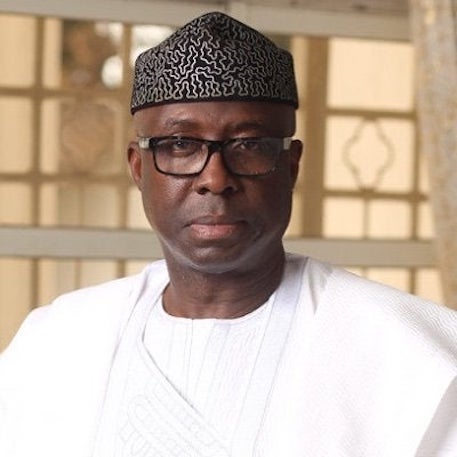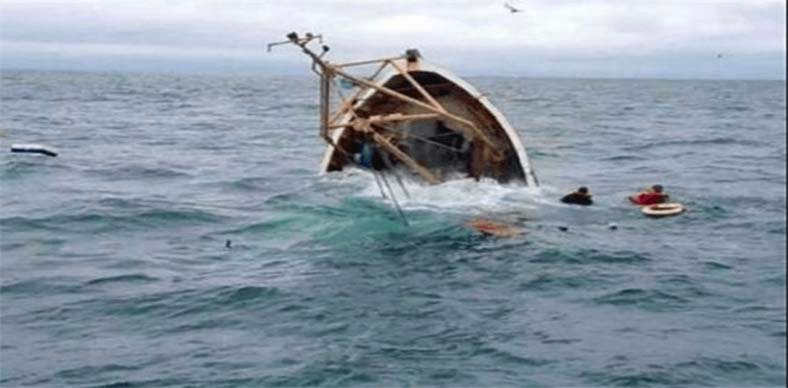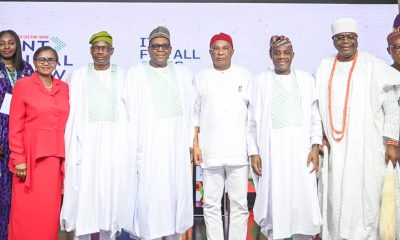EDITORIAL
Attack on Nigerian – owned Businesses in Ghana

Nigerian traders in Ghana recently came under the full weight of the country’s authorities as many of them had their shops and other business premises closed.
Ghanaian authorities implementing a new investment policy, reportedly shut Nigerian- owned businesses for alleged non-compliance with the rules.
At least 100 shops were reportedly shut at the Opera Square in Accra, the nation’s capital. Similar measure is expected in the coming weeks against Nigerian businesses operating at the Kwameh Nkrumah Circle also in the nation’s capital.Under the new investment law of Ghana, foreign businesses operating in the retail segment across sectors are required to pay $1million registrations fees and employ at least 20 Ghanaians in direct jobs.
These requirements to say the least are punitive, draconian and appear all targeted at Nigerian – owned businesses, which have been part of the Ghanaian business environment for decades.
In the bid to enforce the new policy, the Ghana Traders Union Association(GUTA) forcefully closed down Nigerian shops, leading to large scale destruction of their wares.
Before now, GUTA repeatedly complained about alleged domination of the retail businesses by Nigerian nationals to the detriment of their Ghanaian counterparts. The new law is thus intended in part to pacify the country’s nationals.
But there appears more to it as the law in the main is a counter-force against the border closure policy of Nigeria, which has been in force since 2019. Nigeria’s policy was a short term measure to check inflow of small arms and protect the farmers and was not targeted at any particular country as all the neighbours were affected.
In Ghana’s case, Nigerian traders appear to be the main targets.
We condemn in no uncertain terms, the continued harassment of Nigerian traders by Ghanaian authorities as this is not the first time businesses owned by Nigerians would be shut. It would be recalled that in November 2019, the authorities closed down businesses owned by Nigerians for reasons that were all unclear.
We note with sadness, the seeming deterioration of bilateral relations between Ghana and Nigeria, especially under the presidency of Nana Akuffo-Addo.
Only in June, the Ghanaian authorities violated Nigeria’s sovereignty as officials invaded the Nigerian High Commission in Accra and brought down a building constructed by Nigeria to improve on the High Commission’s accommodation in the capital.
In that ugly incident, tempers were high and a major diplomatic row was imminent until President Akuffo-Addo tendered apology to Nigeria with a firm pledge to reconstruct the building at his country’s cost.
From recent happenings however, it appears Ghana is into a hide and seek game of sorts to undermine Nigeria’s influence in the West African sub-region. We hold that this must be decisively checked with all diplomatic arsenal at Nigeria’s disposal.
We welcome the invitation last week, of the Ghanaian Charges’ d’Affairs in Nigeria, Ms Iva Denoo by the Minister of Foreign Affairs, Geoffrey Onyema on the nascent developments.
Similarly, we are encouraged by the quick response of the Speaker, House of Representatives, Femi Gbajabiamila, who summoned the Minister of Foreign Affairs, Onyema and his counterpart for Industry, Trade and Investment, Otunba Niyi Adebayo to brief him on the situation in Ghana with Nigerian businessmen.
It is heart warming to learn that Adebayo has also established contacts with his counterpart in Ghana with the view to resolving the crisis.
In our view, Nigeria should take more decisive steps in showing displeasure to Ghana over this incident. For the first step, we call on President Muhammadu Buhari to immediately recall the Nigerian High Commissioner to Ghana for briefing.
Secondly, Nigeria should approach the Economic Community of West African states (ECOWAS), to convene a special session on this issue so as to avoid a possible escalation of the crisis in Ghana and similar measures in other West African countries where Nigerians also have substantial business investments.
Ghana’s new measures are not only against Nigerians but also injurious to the extant ECOWAS protocols on free movement of people, goods and services.
It is even the more worrisome that the measures are coming at a time ECOWAS appears to be making progress towards the introduction of a common currency to deepen economic integration in the sub-region.
it is high time Nigeria took a radical review of her bilateral relations with Ghana and enthrone measures that would deter the country from undermining her interests in the sub-region.
Finally, we urge the Ghanaian authorities to immediately repeal that piece of legislation, which appears targeted at Nigerians.
The Ghanaian government should immediately stop the closure of Nigerian businesses and allow those whose shops were shut to re-open in the interest of peace and cohesion in the sub-region.
It is worrisome to learn that a potentially violent clash between Nigerian and Ghanaian traders was averted last week on the timely intervention of the Ghanaian police. Its better imagined what would have happened if the clash was not nipped in the bud.
Ghana, like Nigeria and indeed many other economies on the African continent have been badly hit by the COVID-19 pandemic and only battling to recover.
It is therefore, the wrong time to introduce measures that would bring down the livelihood of citizens rather than boost their capacity to earn incomes as the Ghanaian authorities are trying to do with the new law.
EDITORIAL
Repeal Auditor-General Ordinance Act of 1956 Now

The move to reform the Nigeria Auditor General Ordinance Act of 1956 by the National Assembly has been ongoing for over a decade. Though there were significant developments, the bill got stuck at the bi-camera lawmaking chambers where it has continued to undergo series of reviews before it will be transmitted to the president for assent.
Crafted to re-enact the Audit Act, the bill, introduced in the House of Representatives in 2014, has two significant provisions – the independence of the Office of the Auditor General for the Federation (OAuGF) and the establishment of the Federal Audit Service Commission and other matters related thereto.
The passage of the bill shall not only make the OAuGF to be financially independent but shall also grant it administrative autonomy to have powers to recruit, promote and discipline their staff.
It will also empower the OAuGF to carry out audits on all government Ministries, Departments and Agencies (MDAs) and hold them accountable for their stewardship in the use of public resources.
Additionally, it will pave the way for the establishment of the Federal Audit Service Commission which shall be responsible for handling all matters of recruitment, promotion and discipline of members of staff of the office and the Audit Commission.
When the colonial government established the Audit Ordinance Act of 1956, the instrument provided for the position of the Director of Audit. It was meant to provide for adequate and appropriate checks and balances in the colonial financial system.
But for the first time, the 1999 Constitution of Nigeria (as amended), provided for the Office of the Auditor-General for the Federation and the appointment thereof.
With endemic corruption in the country and the continued outcry for stronger institutions to help sanitise the public financial sector, by entrenching the principles of accountability and transparency to prevent and curb corruption, it is imperative and absolutely necessary to advance the course of the 1999 Constitution by way of providing for a robust Audit Act that will make clear and unambiguous provisions required to effectively carry out the mandate of the office.
Recognizing the job of auditors in ensuring that public officials and institutions are held to account is undeniably one of the toughest jobs in government, experts have considered the Audit Bill as a powerful instrument to address issues of poor governance, wastes, inefficiency, lack of accountability and transparency in the public sector.
Therefore, when passed and passed by the president, the bill will also give a stronger backing to the fight against corruption as it guarantees and safeguards operational independence of the OAuGF as a Supreme Audit Institution(SAI).
Additionally, once the bill is passed into law, the Auditor-General shall be vested with more powers to inquire into, examine, investigate and report as he considers necessary on the expenditure of public monies and money advanced or granted to a private organization or body in which the Federal Government has controlling interest.
The financial and administrative independence which the Audit Law will bestow on the office, will complement the legal independence it already enjoys by virtue of Section 85 of the 1999 Constitution (as amended). The administrative autonomy will enable the OAuGF to attract quality human capital at competitive standards for improved efficiency; as recruitment of members of staff will now be conducted professionally by the Federal Audit Service Commission with improved remuneration packages that will challenge them to discharge their duties effectively and professionally too.
Internationally, the OAuGF shall be placed at par with other Supreme Audit Institutions (SAIs). Resultantly, the office shall be accorded more respect and recognition as a credible source of independent and objective insight and guidance to support beneficial change in the public sector. This will also enable those charged with public sector governance to discharge their responsibilities in responding to audit findings and recommendations and taking appropriate corrective actions.
When MDAs fail or delay the submission of their accounts and records or Audited Accounts to the OAuGF without sanctions, it affects timely preparation of the OAuGF Annual Audit Report to the National Assembly as envisaged by the Constitution of Nigeria (as amended) and as a result, the information contained in the report lose its capacity to influence decisions.
DAILY ASSET is of the view that aside from the passage of the bill, the OAuGF should be placed on first line charge. It must be adequately funded to enable it to effectively audit the 1023 MDAs and over 123 embassies and foreign missions.
Also, the government must ensure adequate provision of accommodation for auditors for effective discharge of their assignments. Auditors on oversight assignment should not reside in the same office with the MDAs they audit for a fair and balanced audit report.
Finally, the task of fighting corruption and blocking wastes in systems is a huge challenge that requires all hands on deck hence the need for inter-agency collaboration, cooperation and sharing of vital information between public institutions charged with responsibilities of fighting corruption.
EDITORIAL
Urgent Need to Tackle Insecurity and Looming Hunger Crisis

Critical stakeholders in the agriculture sector have persistently warned that the relentless wave of attacks against farmers in Nigeria by cattle pastoralists, bandits and kidnappers could further contribute to the nation’s economic woes. Already, there is unprecedented shortfall in food supplies.
This unfortunate trend threatens to push Nigeria deeper into a devastating hunger crisis. Increasing attacks on farmers across parts of the country have led to displacement of farmers, market disruptions and loss of livelihoods. In particular, food basket states like Benue, Niger, Kaduna, Borno, Plateau, Kogi and farming communities are being relegated and dehumanised to camps as Internally Displaced Persons (IDPs), thereby worsening the food crisis in the country.Bandits, kidnappers and other dare-devil armed groups have been killing farmers in their hundreds while others are kidnapped and made to buy their lives with millions of naira, thus forcing many farmers to abandon their farms.To worsen the situation, there are devastating floods in many parts of the country which have claimed dozens of lives and have washed away thousands of hectares of cultivated farmlands. This has exacerbated the plight of farmers. The climate change crisis is more likely to push many more people into hunger because of the flooding and unpredictable rainfall pattern, far more severe than in previous years will further compound the food crisis.Last year, the UN estimated that more than 25 million people in Nigeria could face food insecurity this year, a 47 percent increase from the 17 million people who were already at risk of going hungry – mainly due to the ongoing insecurity, protracted conflicts, and the projected rise in food prices.In addition, an estimated 2million children under the age of five in the northeastern states of Borno, Adamawa, and Yobe are likely to be pushed into acute malnutrition while about 700,000 will face life threatening starvation.Also, in the 2023 Global Hunger Index, Nigeria ranked 109th out of the 125 countries with food shortage with a score of 28.3 in the 2023 Global Hunger Index. Thus, Nigeria has a level of hunger that is serious.Already, the food crisis, insecurity and corruption have reached an alarming rate which triggered a 10-day protest across the country last month.DAILY ASSET is of the view that for the Tinubu administration to get Nigeria out of the woods, it must redouble efforts to tame the rising spate of insecurity in the country.That the nation’s armed forces must urgently embrace technology and involve new strategies to restore security for the displaced farming communities to resume full farming activities.Additionally, the federal and state governments should explore the possibility of tackling unemployment, poverty and inequality.Also, the porous borders have to be strengthened to prevent the influx of undesirable elements through increased surveillance by security agencies.The complex challenges facing Nigeria can only be tamed through the implementation of workable strategies, commitment and cooperation among all stakeholders.EDITORIAL
Oloyede: Accolades to Unconventional Public Servant

Akin to an eagle-eyed combat pilot on a reconnaissance mission – making his flight preparations, loading the right ammunition and aiming at his target without missing, so was Prof. Is’haq Olarewaju Oloyede, when he arrived the headquarters of the Joint Admissions and Matriculation Board (JAMB), upon his appointment in 2016.
In the first few months of his assumption of office, activities pervaded to the lowest ebb at the JAMB headquarters.
Like a fighter pilot on a rescue mission, Oloyede embarked on a discreet but holistic audit of the board. He was simply planning how to navigate his flight in order to hit his target, without missing.While in the closet planning, there was a shift in the timetable date of the Unified Tertiary Matriculation Examination (UMTE) for that year and tongues went wagging, mostly from staffers of the board that the newly appointed Professor of Islamic Studies and “controversial” former Vice Chancellor, University of Ilorin, was totally confused and clueless about the demands of the office and the direction to take the examination body.
After the audit, Oloyede gathered enough information and momentum. He then released his mission and vision for the examination body, chief of which was to reposition the board technologically to eliminate all forms of examination malpractices and timely release of results to candidates – three days of sitting for the examination.
Those pronouncements were followed with wide ranging reforms, including unraveling of mind blowing malfeasance of corruption involving several workers of the board. For instance, a staff of the board in Benue State was involved in massive fraud of stealing millions of naira from the sale of examination scratch cards which she claimed was swallowed by “a snake” from the office save.
In Nasarawa State, the staff of the board who was also caught in fraudulent financial malfeasance claimed his car was burnt along Abuja-Lafia road with all the examination scratch cards that were meant for sale to prospective candidates in the state.
In Kogi State, the staff of the board with itchy fingers claimed he had borrowed money to the state civil servants who were being owed several months of salaries. The ugly stories of massive stealing of the board’s funds reverberated in many states including the headquarters where the former helmsman, Prof. Dibu Ojorinde is currently standing trial for allegedly stealing hundreds of millions of naira.
With those monumental financial malfeasances, candidates were hitherto ripped off of their hard earned money as the examination body was shrouded in fraudulent and chaotic scheming. Consequently, floods of complaints poured in from several quarters on pre-registration and post examination irregularities.
But Oloyede’s surgical knife had cleaned the process and restored sanity after one year in office. By the second year, the examination body had saved over N8 billion and remitted same to the Federal Government, a remarkable departure from about N300 million the examination body was hitherto remitting per year to the government.
Thus, in 2018, the Muhammadu Buhari administration had to review downward the cost of registration of the UTME to N4,500 per candidate from the over N7,000 hitherto charged.
Elated by these remarkable achievements, President Bola Tinubu applauded Prof. Oloyede’s innovative ideas and financial prudence at a recent public engagement organised by the Economic and Financial Crimes Commission (EFCC). .
“One person I always respect is Prof Is’haq Oloyede. Over the years, JAMB never made up to $1m for the Federal Government.
“However, when Prof Oloyede assumed office, JAMB made over N50bn for the Federal Government in one year.”
Another landmark achievement is the initiative in providing Persons with Disabilities (PWDs) the opportunity to register for the 2024/2025 UTME at no cost. This will ensure equal educational opportunities for all, irrespective of physical abilities,
Additionally, the board has acquired some basic tools required by PWDs, like braille machines, personal computers with enlarged features, et al, for persons with special needs.
At a time of verbal rhetoric about fighting corruption by most public servants who are short on practical implementation, at a time revenue generating departments and agencies carry out opaque operations with no tangible results, JAMB, under the captainship of Oloyede, unarguably stands as a referral government agency for transparency.
DAILY ASSET, while commending the management and staff of JAMB, for their commitment to hard work, is pleased to extend warm accolades to a nonconformist and unconventional public servant with passion for accountability and service to humanity.

























